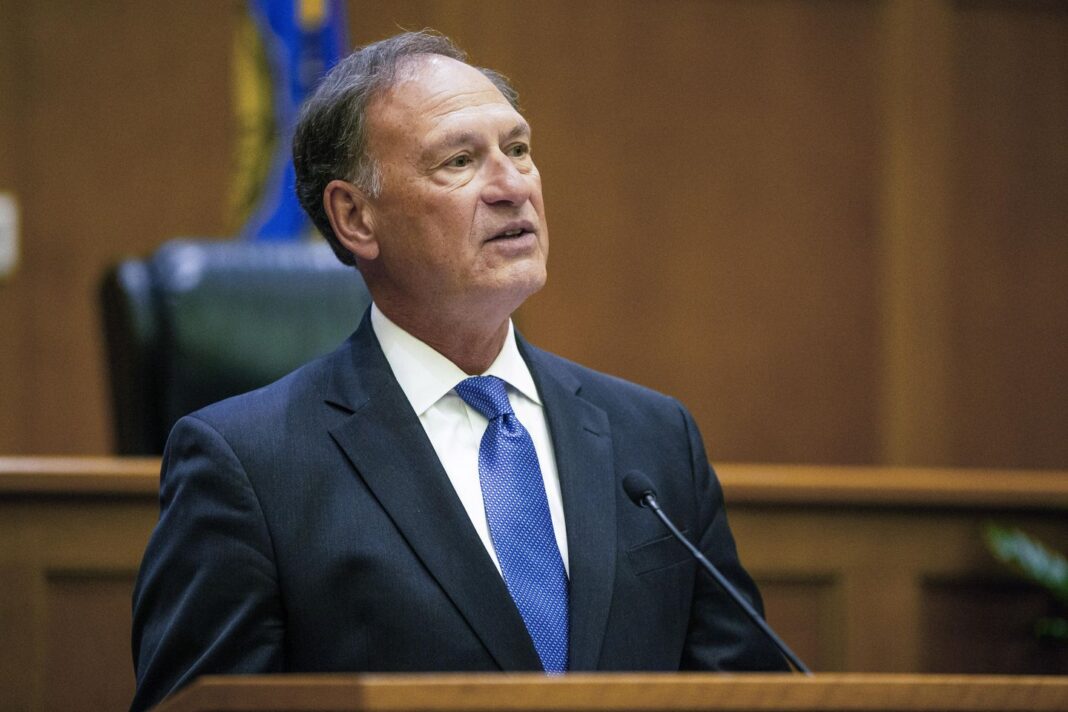The Daily Observer London Desk: Reporter- Donna Robert
Justice Samuel A. Alito Jr. rebuffed a request by Senate Democrats to recuse himself in a case after he told a reporter that ethics legislation for the high court would be unconstitutional.
In orders from the high court released Friday, the George W. Bush appointee said there was “no valid reason” for him to not hear the case of Moore v. United States.
The dispute concerns a couple who challenge the taxing of unrealized income as minority shareholders in a corporation that reinvests its profits.
David Rivkin, a lawyer representing the couple in the case that will be heard during the upcoming term, co-authored stories in The Wall Street Journal that discussed Justice Alito’s view on the debate in Congress over imposing an ethics code on the high court and discussed security concerns of the justices.
The stories were published in April and July.
Justice Alito said a call for him to recuse himself from the case is unwarranted, noting other justices have sat for interviews with media outlets and even co-authored books with attorneys who appear before the court.
He said the justices must put aside personal comments or analysis of their work when considering a legal dispute.
“There was nothing out of the ordinary about the interviews in question. Over the years, many justices have participated in interviews with representatives of media entities that have frequently been parties in cases before the court,” he wrote.
Former law clerks, former colleagues and acquaintances often have business before the bench, Justice Alito noted.
“If we recused in such cases, we would regularly have less than a full bench, and the court’s work would be substantially disrupted and distorted. In all the instances mentioned above, we are required to put favorable or unfavorable comments and any personal connections with an attorney out of our minds and judge the cases based solely on the law and the facts. And that is what we do,” he wrote.
The lengthy explanation of his decision not to recuse is somewhat of a win for critics who have been calling for more transparency from the high court into decision-making surrounding potential conflicts of interest.
Senate Democrats have been pushing legislation that would require the high court to impose an ethics code on itself after a series of news articles came out in recent months critical of some of the conservative justices’ relationships with billionaires.
The high court doesn’t have a mandatory code of ethics, even though lower court judges are expected to avoid impropriety.
Chief Justice John G. Roberts Jr. has said the high court has generally followed the Judicial Conferences’ Code of Ethics binding on lower courts — but not the Supreme Court — since 1991.
He said all justices must file disclosures that are reviewed by the Judicial Conference Committee on Financial Disclosure and follow what lower courts do with recusals. He noted the system is flexible, given the composition of the high court.
He also said the justices’ security has faced increased threats and sometimes don’t disclose travel arrangements for security reasons.
Senate Republicans have dismissed the accusations of ethics concerns and said it’s a political attempt by Democrats to delegitimize the Supreme Court.
In a letter Aug. 3, Senate Judiciary Committee Chairman Dick Durbin and his Democratic colleagues asked the chief justice to ensure Justice Alito’s recusal from the case involving Mr. Rivkin and from hearing any legal challenges to proposed ethics legislation for the bench.
“Mr. Rivkin’s access to Justice Alito and efforts to help Justice Alito air his personal grievances could cast doubt on Justice Alito’s ability to fairly discharge his duties in a case in which Mr. Rivkin represents one of the parties,” the letter read.



